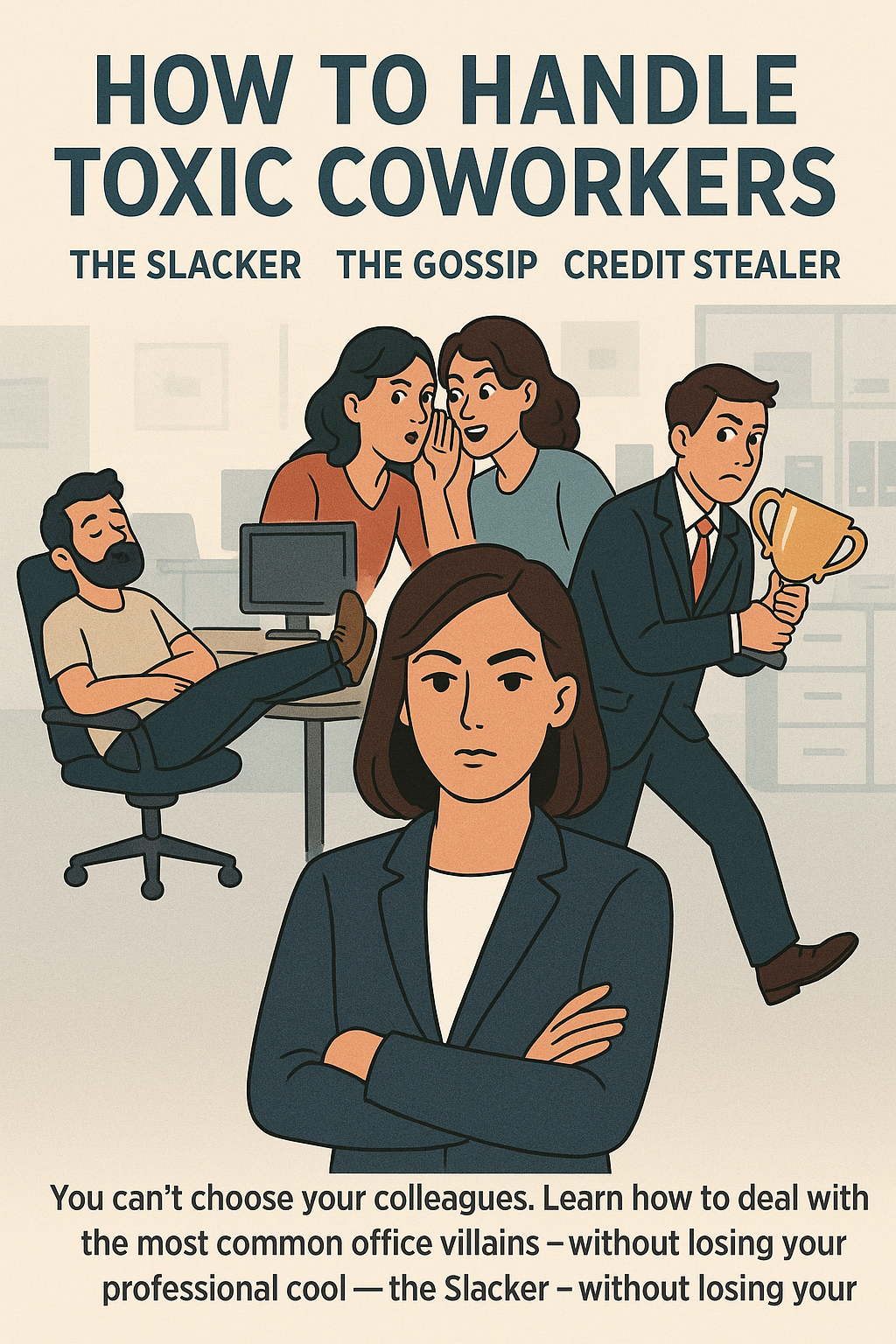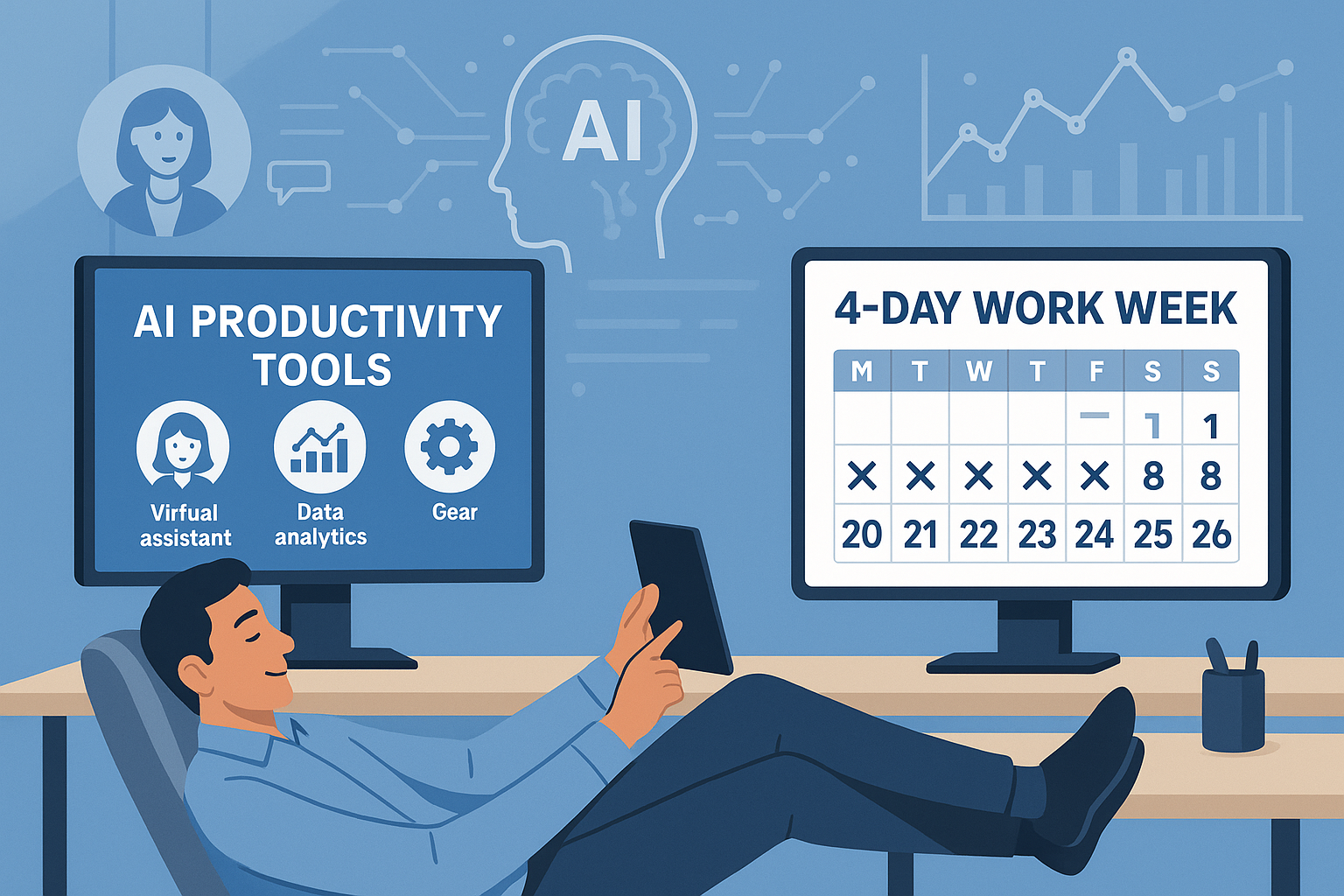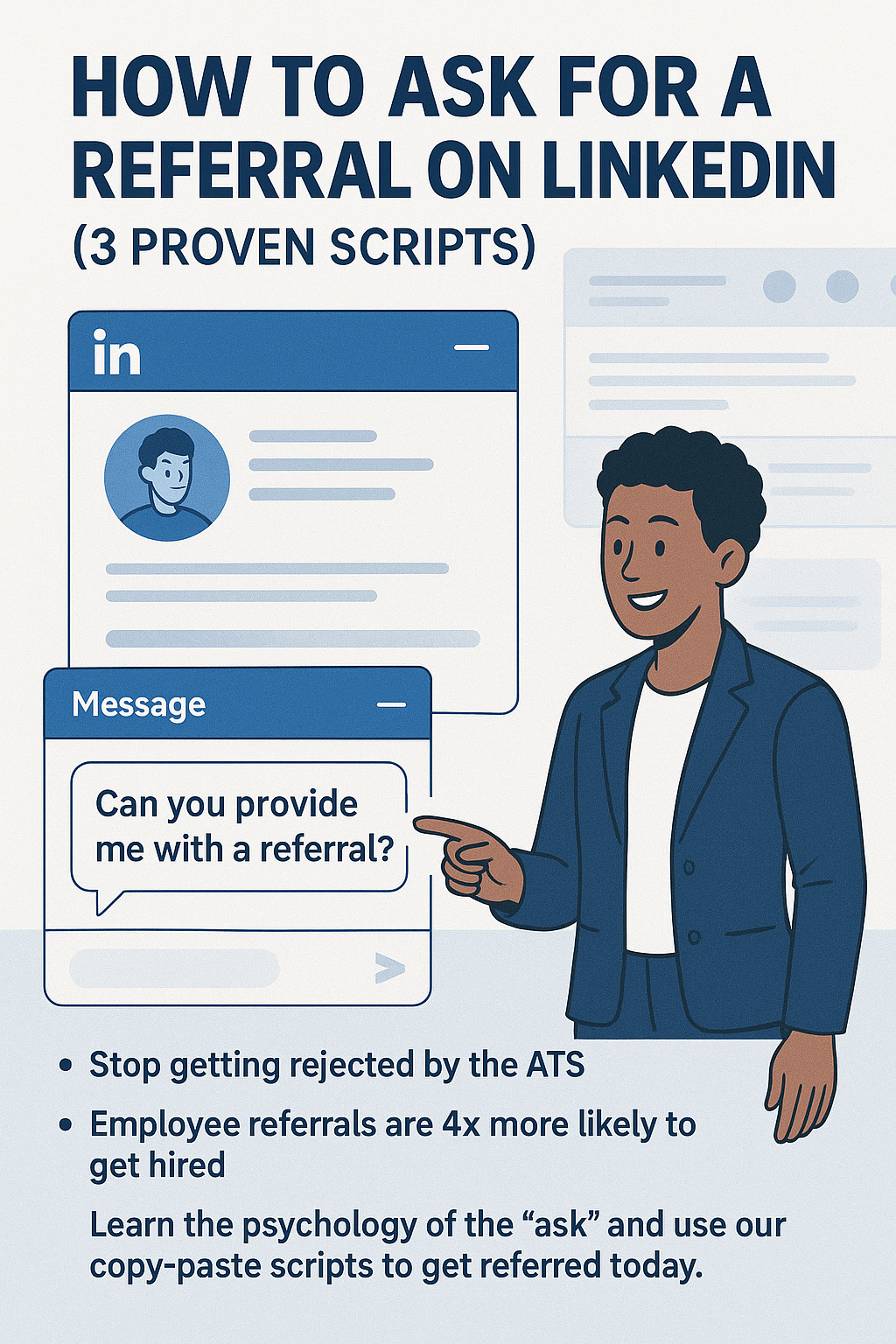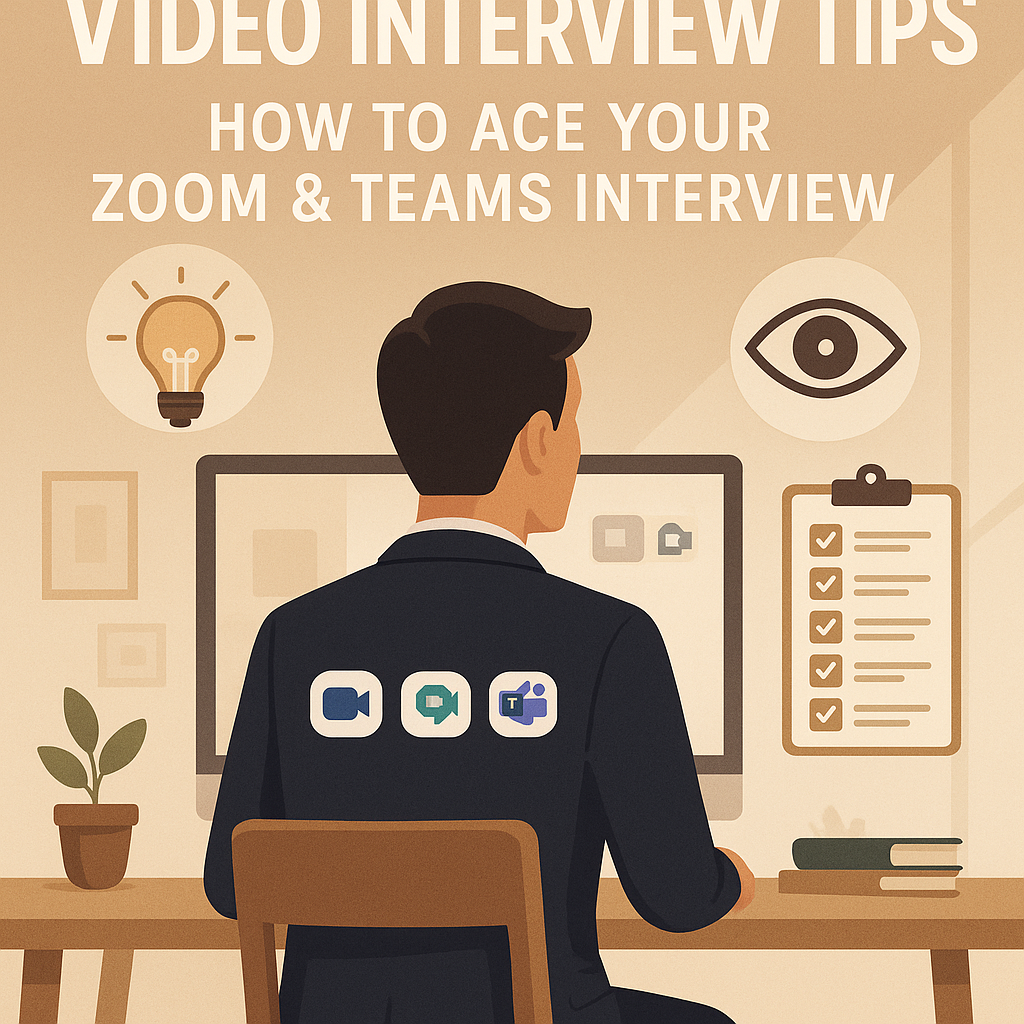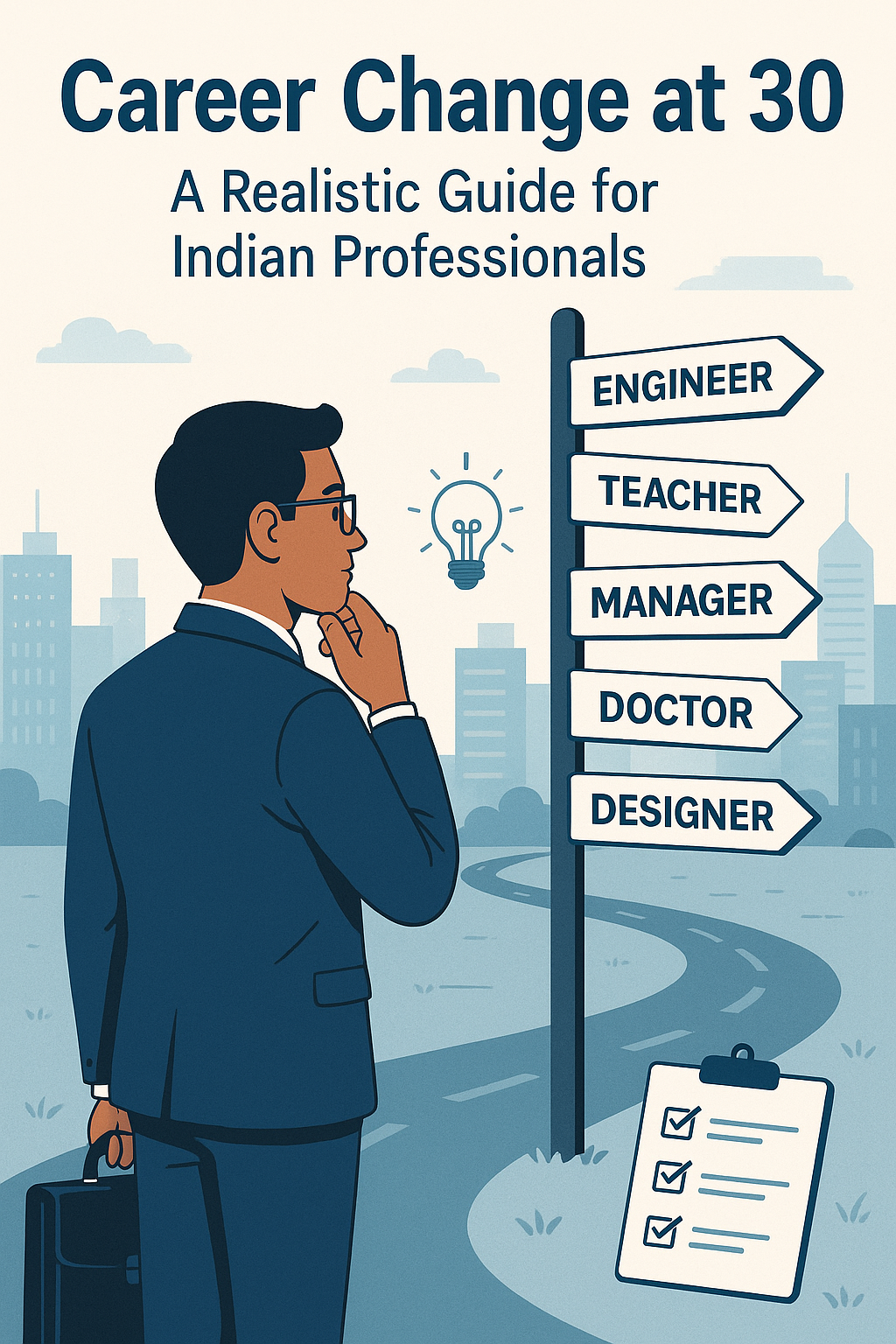
Career Change at 30: A Realistic Guide for Indian Professionals
For many Indian professionals, the journey into their late twenties and early thirties marks a significant turning point. The path you chose after college, the one that seemed so clear and promising, might now feel less like a calling and more like a compromise. The initial excitement of your first job has given way to a routine, and a nagging question begins to surface in the quiet moments: "Is this really what I want to be doing for the next 30 years?"
This feeling is incredibly common. The career you chose at 21, with limited knowledge of the professional world, may not align with the person you've become at 30. Your priorities have shifted. You've discovered new passions. You've seen friends and colleagues thrive in fields that seem more dynamic, more fulfilling, or more financially rewarding. The idea of a career change starts to take root, a tempting but terrifying prospect of starting over.
In India, the decision to change careers around the age of 30 is often layered with unique societal and financial pressures. You might have a family to support, an EMI to pay, and the weight of parental expectations on your shoulders. The "safe" and "stable" path you're on feels secure, while the idea of a pivot can seem reckless and irresponsible. Your well-meaning relatives might question your decision, and you yourself might be plagued by self-doubt: "Am I too old to start again? Will I have to take a huge pay cut? How can I possibly compete with younger candidates who have a degree in that field?"
These fears are valid, but they should not be a barrier. A career change at 30 is not just possible; it can be the single most empowering and rewarding decision of your professional life. You are not starting from scratch. You are pivoting from a position of strength. You bring a decade of professional experience, a mature work ethic, and a wealth of transferable skills that freshers simply do not have. The key is not to erase your past, but to strategically leverage it to build your future.
This is not a guide about impulsively quitting your job to "follow your passion." This is a realistic, strategic, and practical roadmap for Indian professionals on how to successfully navigate a mid-career transition. We will address the challenges head-on and provide a step-by-step framework for making a smart, sustainable, and successful career change.
The 'Why': The Critical First Step of Self-Assessment
Before you even think about what new career you want, you must deeply understand why you want to leave your current one. A career change is a major life decision, and it needs to be driven by a clear purpose, not just a vague feeling of dissatisfaction. A superficial "why" (like "my boss is annoying" or "I'm bored") can often be solved by changing jobs within the same industry, not by a complete career overhaul.
You need to dig deeper. Grab a notebook and spend some serious time on introspection. * Identify the Push Factors: What specific things about your current career are making you unhappy? Is it the nature of the work itself (e.g., too analytical, not creative enough)? Is it the industry (e.g., slow-moving, not innovative)? Is it the lifestyle it demands (e.g., long hours, high stress)? Be brutally honest and specific. * Identify the Pull Factors: What are you moving towards? What is missing from your current professional life? Is it a greater sense of purpose? A better work-life balance? The opportunity to use a different set of skills? More intellectual stimulation? * Analyze Your Strengths and Passions: What are you genuinely good at, both inside and outside of work? What activities make you lose track of time? What topics do you find yourself reading about in your spare time? The intersection of what you're good at and what you enjoy is often where your ideal new career lies.
This process of self-assessment is non-negotiable. It provides the clarity and conviction you will need to stay motivated when the journey gets tough.
The 'What': Researching and Validating Your New Path
Once you have a clearer sense of your "why," you can begin to explore the "what." This is the research phase, where you turn your vague ideas into concrete, viable career options.
Bridge Your Past to Your Future
Your best-fit new career is often one that allows you to leverage your existing experience. This is the concept of "career pivoting," not career jumping. Look for fields that value your transferable skills. * An experienced lawyer with strong analytical and communication skills might be a great fit for a role in policy advocacy or management consulting. * A seasoned sales manager who understands customer needs deeply could pivot into a successful career in product management. * A meticulous accountant could transition into a role in financial data analysis.
The goal is to find a path where your past decade of experience is seen as an asset, not a liability.
Conduct Informational Interviews
This is the single most valuable research tool at your disposal. An informational interview is a short, informal chat with someone who is currently working in the career you are considering. It is not a job interview; it is a fact-finding mission.
Use LinkedIn to find people in your target roles. Reach out to them with a polite and specific request for a 15-minute virtual coffee chat. Prepare thoughtful questions. Ask them about the best and worst parts of their job, the skills that are most critical for success, the typical salary range, and the long-term career prospects. This firsthand information is pure gold and will give you a much more realistic picture of the career than any online article can. It’s also a fantastic way to start building a network in your new field.
Test Drive Your New Career
Before you make the full leap, find low-risk ways to "test drive" your new career. * Take an Online Course: If you're thinking of moving into digital marketing, take a comprehensive online certification course. This not only helps you build foundational skills but also confirms if you genuinely enjoy the subject matter. A platform like Allrounder.ai to learn can be a great resource for this. * Start a Freelance Project: Offer to do a small project on the side. If you want to be a content writer, start a blog or take on a small freelance writing gig. This provides real-world experience and helps you build a portfolio. * Volunteer: Find a non-profit organization where you can volunteer your time using the skills of your target career. This is a fantastic way to gain experience and make connections.
The 'How': Executing a Strategic Transition
Once you have validated your new career path, it's time to execute your transition. This process should be gradual and strategic, not a sudden leap.
Upskill and Bridge Your Skill Gaps
You've identified the skills you need; now you need to acquire them. This might mean taking an evening course, completing a six-month certification program, or even pursuing a formal degree if necessary. Focus on building practical, project-based skills. If you're moving into a tech role, for example, your GitHub portfolio of personal projects is often more valuable to an employer than a simple course completion certificate. Platforms with hands-on labs, like JobPe's Coding Practice section, are invaluable for this.
Rewrite Your Career Narrative: The Pivot Resume
You cannot use your old resume for your new career. Your resume needs a complete overhaul. You need to create a "pivot resume" that de-emphasizes your old job titles and emphasizes your transferable skills and new qualifications.
Start with a powerful Professional Summary at the top. This is a 3-4 line paragraph that immediately frames your experience in the context of your new career. For example: "A seasoned sales professional with 8+ years of experience in understanding customer needs and driving revenue, now transitioning into Product Management. Proven ability to translate user feedback into actionable product insights, combined with a recent certification in Agile and Scrum methodologies."
Your Work Experience section should be re-written to highlight achievements that are relevant to your new field. A smart tool like the JobPe Resume Builder can be incredibly helpful here, as it can help you find the right language to reframe your past accomplishments.
The Financial Plan: Your Safety Net
A career change can often involve a temporary dip in income. It's crucial to plan for this financially. Before you quit your current job, you should aim to have at least 6-9 months of living expenses saved up in an emergency fund. This financial safety net gives you the freedom to search for the right role in your new field, not just the first one that comes along.
The Interview: Selling Your Story
In the interview, you will inevitably be asked, "Why the career change?" This is not a question to fear; it is your opportunity to shine. Your answer should be a confident, positive, and compelling story based on the self-assessment you did in step one.
Frame your answer as a logical evolution, not an escape. Talk about how your previous career gave you a strong foundation of transferable skills, but you discovered a passion for [New Field] and have been proactively upskilling to make this deliberate and strategic pivot. Your enthusiasm, your self-awareness, and the clear, logical story behind your decision will be far more impressive to an interviewer than a candidate who has simply followed a linear path without reflection. Be prepared for a mix of behavioral and technical interview questions to test both your past experience and your new skills.
Conclusion: You Are Not Starting Over; You Are Leveling Up
A career change at 30 is not a step backward. It is a powerful act of self-awareness and a strategic investment in your long-term happiness and professional fulfillment. You are not starting from zero. You are bringing a decade of wisdom, maturity, and a rich set of transferable skills to a new and exciting field.
The journey requires courage, careful planning, and a lot of hard work. But by understanding your "why," validating your "what," and strategically executing your "how," you can navigate this transition with confidence. You can build a new career that is not just a job, but a true reflection of who you are and the value you bring to the world.
To explore opportunities in your new target field and set up job alerts that match your new career goals, https://jobpe.com.

Creative Content Writer


